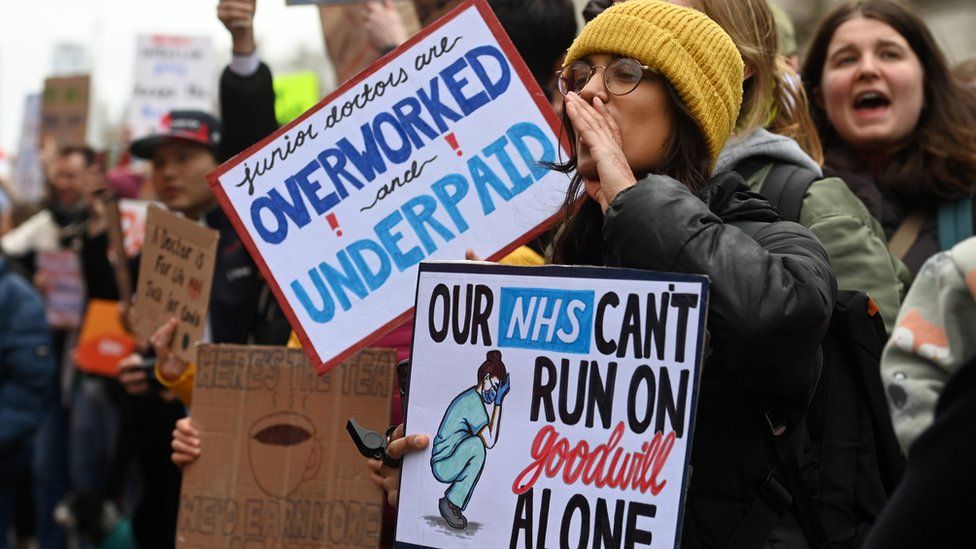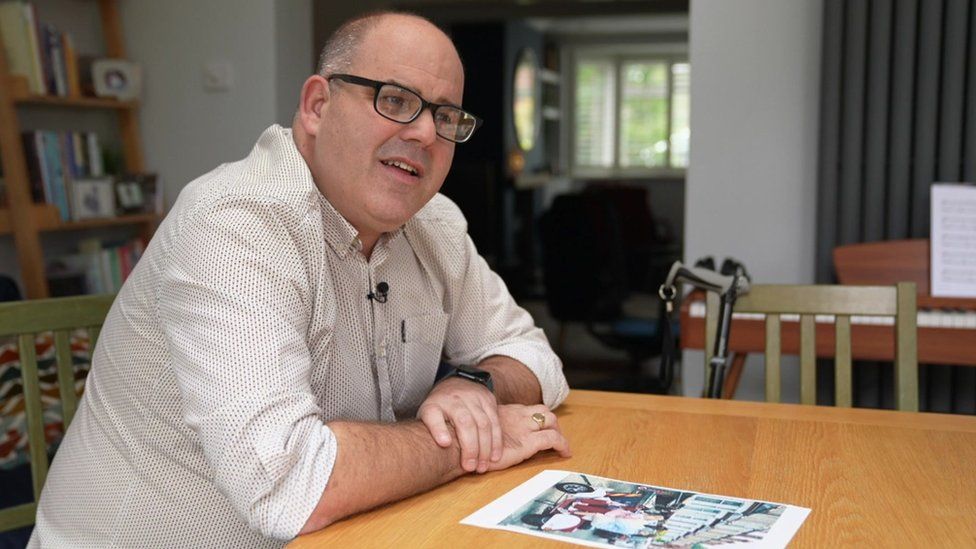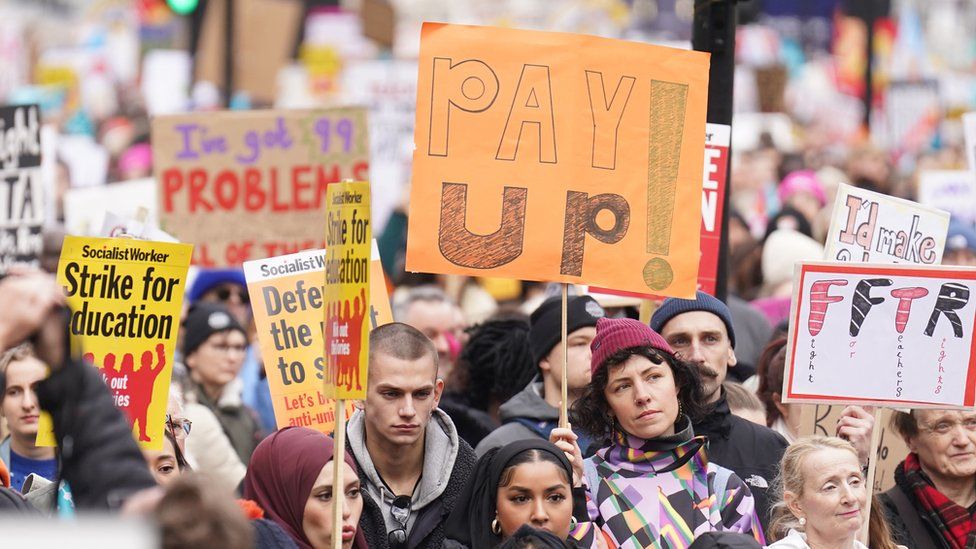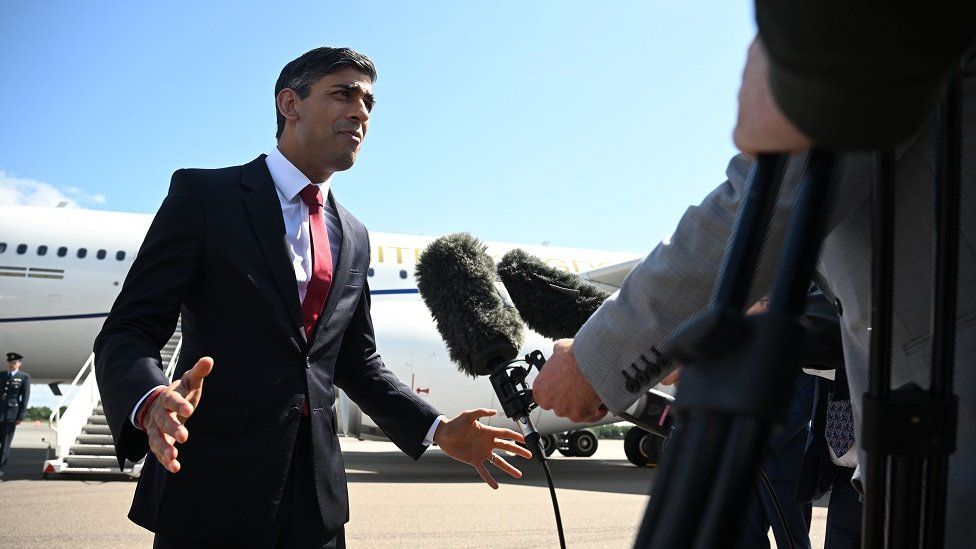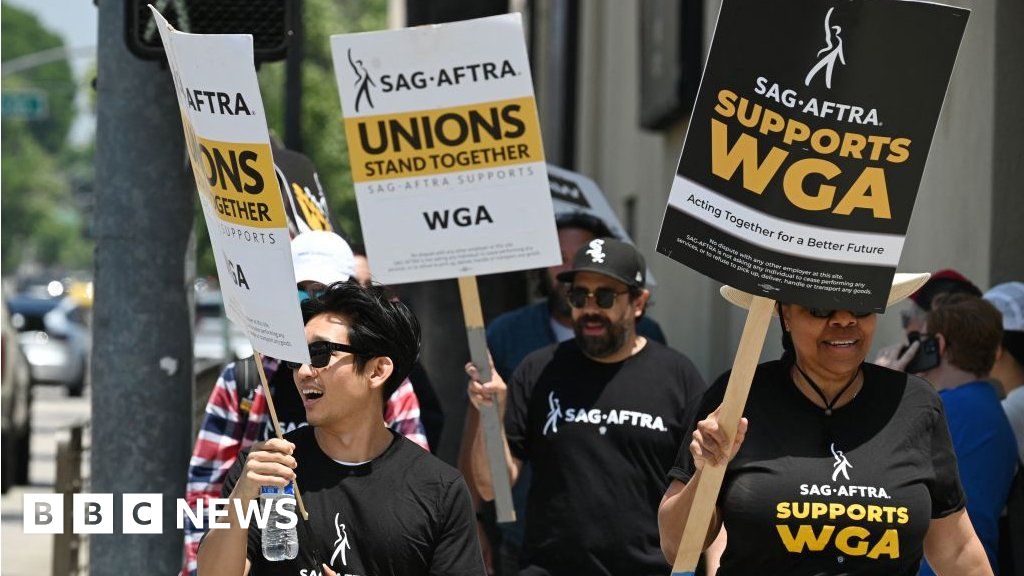
This video can not be played
To play this video you need to enable JavaScript in your browser.
The Screen Actors Guild has gone on strike, marking the start of the largest shutdown Hollywood has seen in 40 years.
The union wants streaming giants to agree to a fairer split of profits and better working conditions.
The strike means that 160,000 performers will stop work immediately.
Stars Cillian Murphy and Emily Blunt left the Oppenheimer premiere as the strike began, according to director Christopher Nolan.
The union is also asking for a guarantee that artificial intelligence and computer-generated faces and voices will not be used to replace actors.
On Wednesday, the union - officially known as the Screen Actors Guild-American Federation of Television and Radio Artists, or SAG-AFTRA - announced that it was unable to come to an agreement with major studios.
The breakdown of talks prompted the negotiating committee to vote unanimously to recommend strike action.
The group representing the studios, the Alliance of Motion Picture and Television Producers, or AMPTP, said that "a strike is certainly not the outcome we hoped for as studios cannot operate without the performers that bring our TV shows and films to life".
"The union has regrettably chosen a path that will lead to financial hardship for countless thousands of people who depend on the industry," its statement added.
Fran Drescher, SAG's president, said that the organisation's strike comes at a "very seminal moment" for actors working in the industry.
"What's happening to us is happening across all field of labour by means of when employers make Wall Street and greed their priority, and they forget about the essential contributors that make the machine run," she added. "We have a problem".
A separate strike by the Writers Guild of America demanding better pay and working conditions has been going since 2 May. Some writers have turned to writing projects that are not covered by the contract between the guild and the Alliance of Motion Picture and Television Producers.
The "double strike" by both unions is the first since 1960, when the SAG was headed by actor and former US President Ronald Reagan. The last strike by actors took place in 1980.
A third union, the Directors Guild of America, successfully negotiated a contract in June and will not participate.
The beginning of the strike will mean that a vast majority of US film and TV productions will be forced to stop, adding to a list of projects that have already shut down or stalled because of the writer's strike.
Top Hollywood stars will also not be able to attend events to promote new and upcoming releases. Events including the Emmys and the upcoming Comic-Con may be rescheduled or scaled back.
Several top Hollywood stars have expressed their support for a strike, including Barbie actor Margot Robbie, Meryl Streep and Dwayne "the Rock" Johnson.
Related Topics
https://news.google.com/rss/articles/CBMiNmh0dHBzOi8vd3d3LmJiYy5jby51ay9uZXdzL2VudGVydGFpbm1lbnQtYXJ0cy02NjE5NjM1N9IBOmh0dHBzOi8vd3d3LmJiYy5jby51ay9uZXdzL2VudGVydGFpbm1lbnQtYXJ0cy02NjE5NjM1Ny5hbXA?oc=5
2023-07-13 19:25:04Z
2241078406




